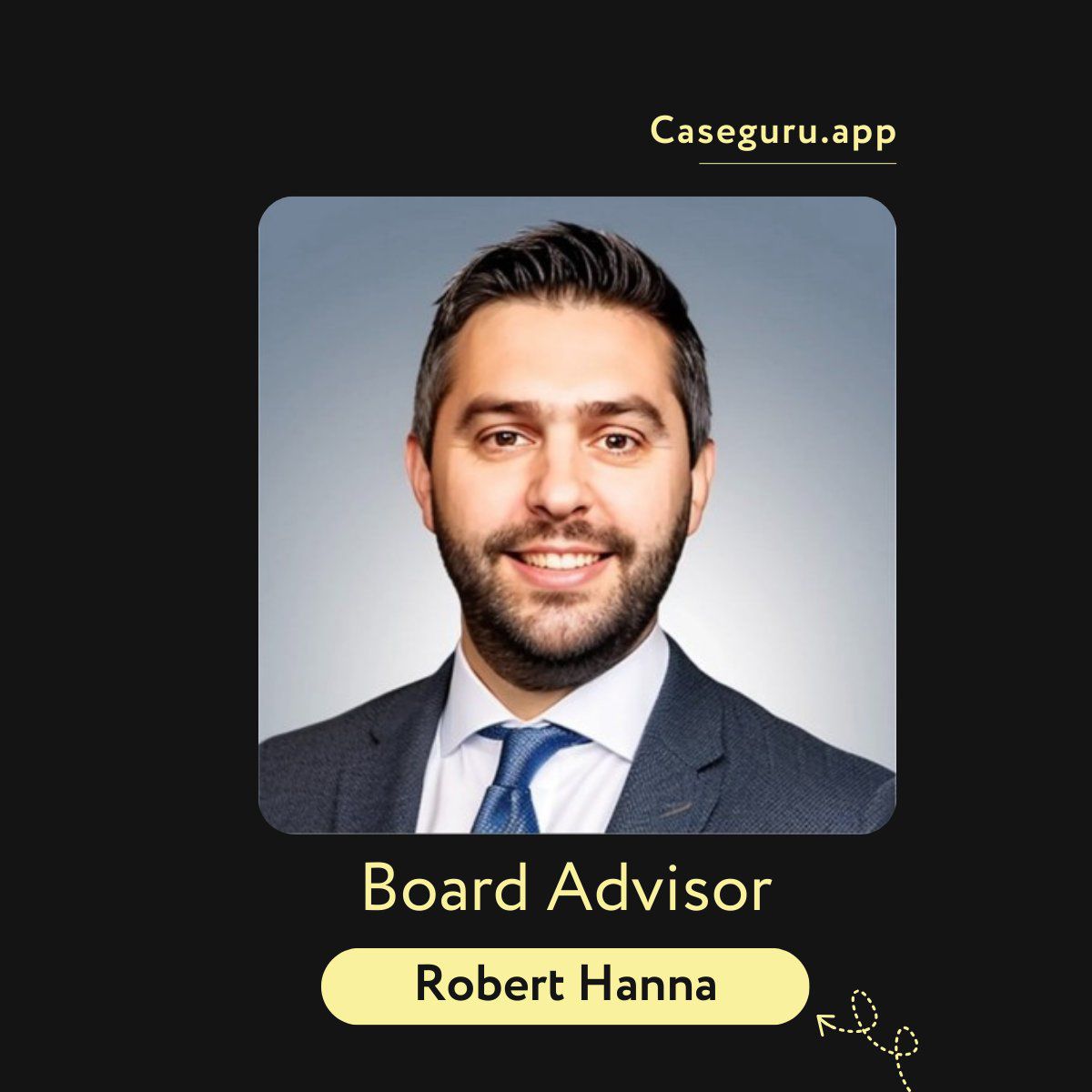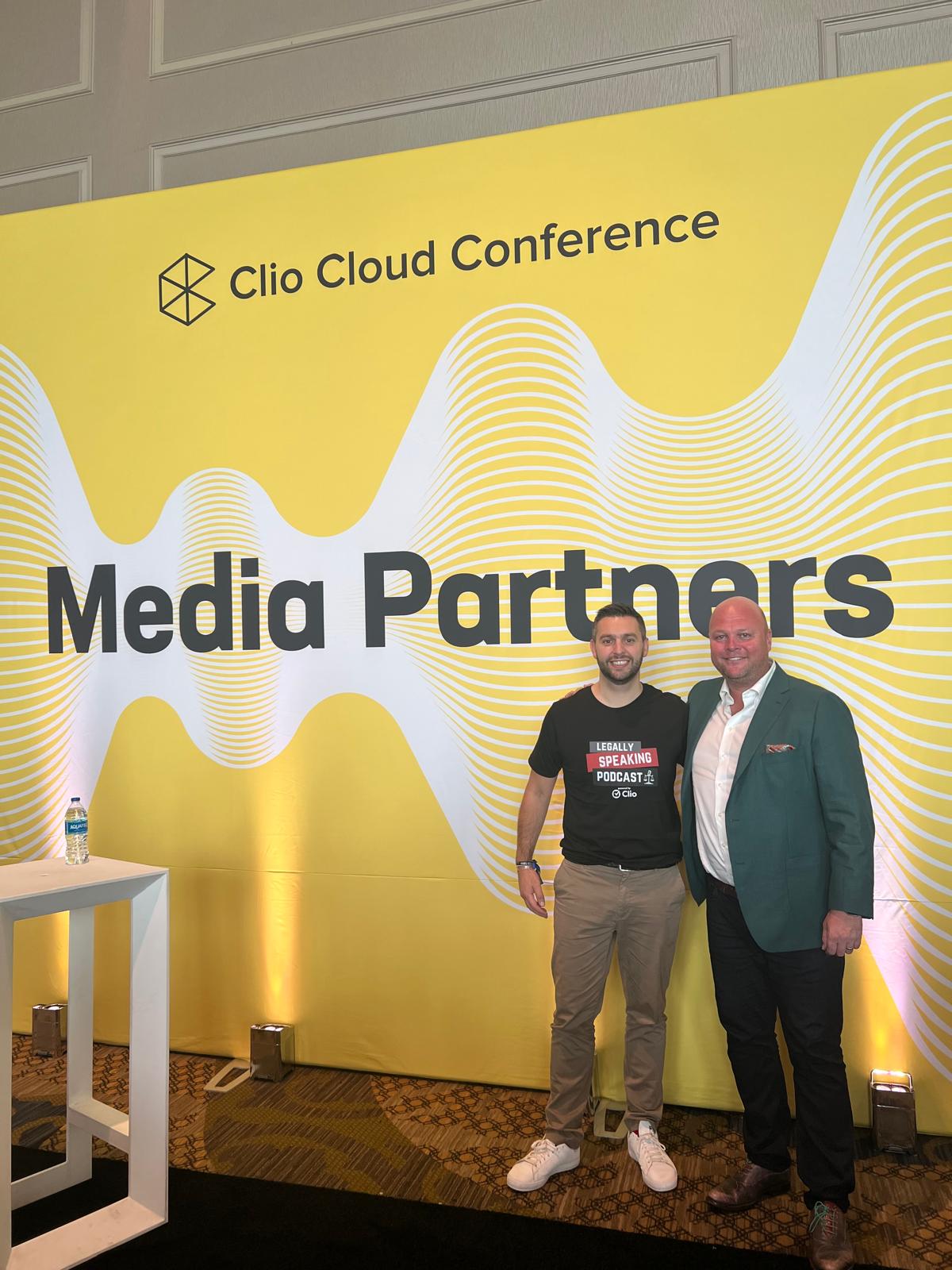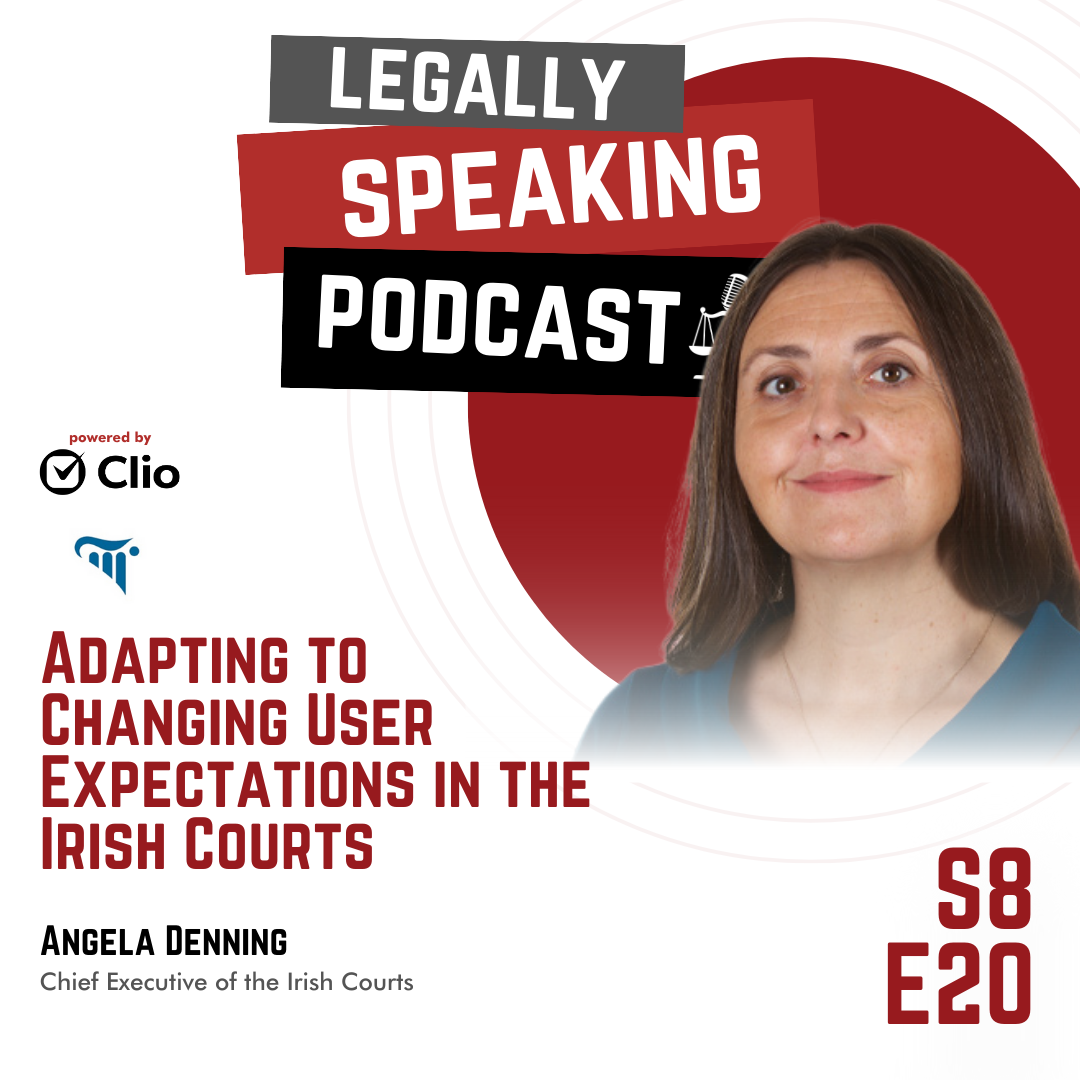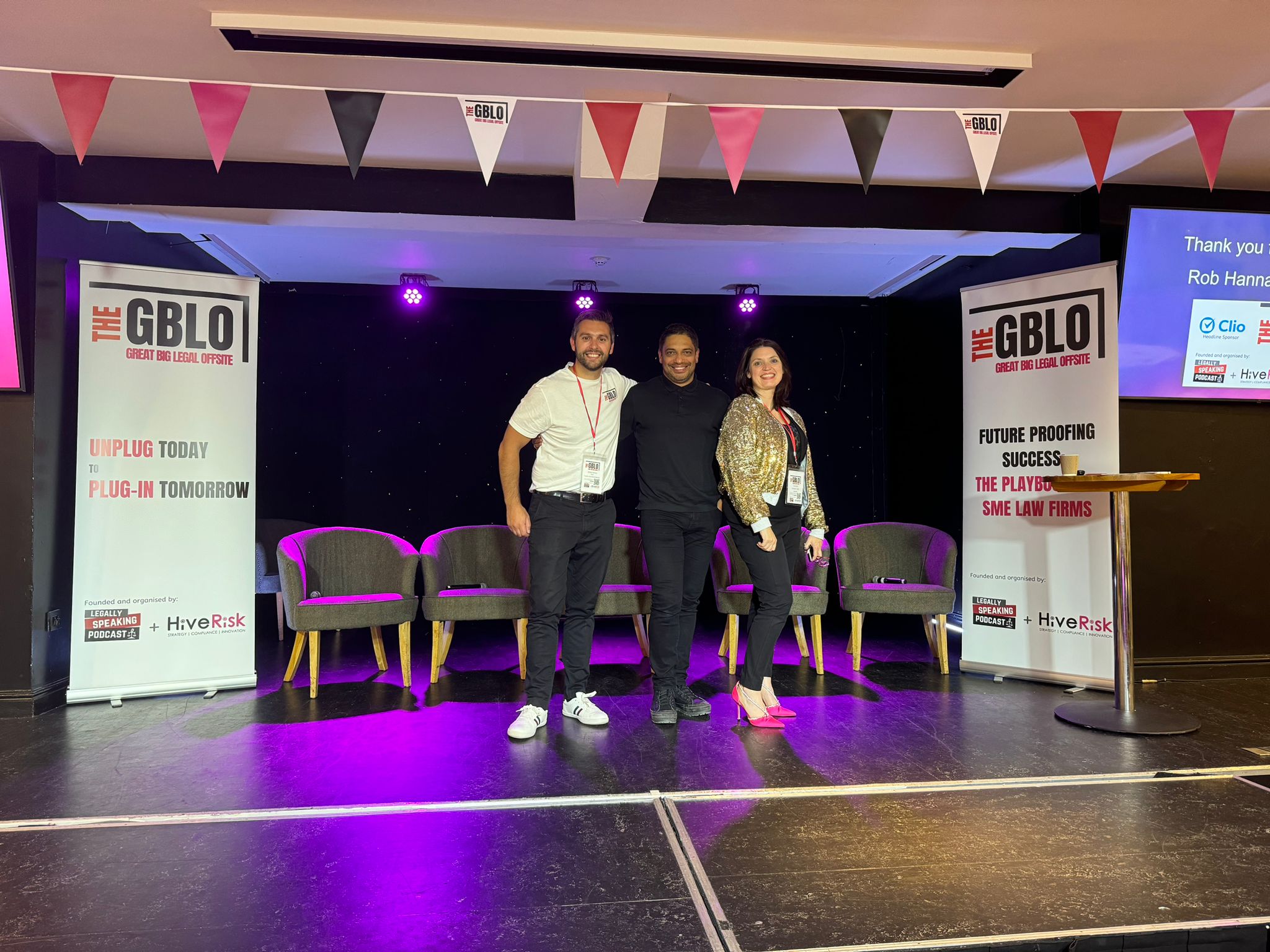
Our Host has joined the Advisory Board of Caseguru!
Congratulations to Our Host, Robert Hanna, on joining the Advisory Board of Caseguru!🌟 Finding a lawyer

The Legally Speaking Podcast are delighted to bring you all the ‘A Graduate Recruiters Guide’ Miniseries, featuring Paul Gascoyne from Shearman & Sterling.
Paul is a Senior Recruitment Manager at Shearman & Sterling with over 10 years of experience in recruiting graduates and school leavers. Prior to this Paul worked at BPP Law School as a Senior Outreach Marketing Manager. Paul is renowned for creating excellent resources for aspiring lawyers.
The Miniseries will delve into how aspiring lawyers can master the training contract & vacation scheme application process, from researching law firms, getting the right things in your application and also dispelling some of the classic myths that many believe to be true.
In our first episode, our host Rob Hanna and Paul discuss how to research law firms, including:
00:01 Robert Hanna:
Welcome to the Legally Speaking Podcast. I’m your host Rob Hanna. I’m delighted to bring you all the A Graduate Recruiters Guide Mini series featuring Paul Gascoigne from Shearman and Sterling. Paul is a senior recruitment manager at Shearman and Sterling with over 10 years of experience in recruiting graduates and school leavers. Prior to this, Paul worked at BPP Law School and as a Senior Outreach marketing manager. Aside from recruitment, Paul has a strong background in developing business plans and implementing marketing campaigns. Paul is known for his invaluable advice and support when applying for vacation schemes and training contracts as well as supporting junior lawyers in their journey into the legal world. This mini series will delve into how aspiring lawyers can master the training contracts and vacation scheme application process; from researching law firms, getting the right things in your application, and also dispelling some of the classic myths that many believe to be true. So for today’s episode, we will be talking about how to research law firms, Paul and I are going to be discussing how to brush up your research skills. And now that research that you need. So very, very warm welcome, Paul.
01:21 Paul Gascoigne:
Thank you very much what an introduction that was, I don’t know where you got that from while I was happening.
01:25 Robert Hanna:
I know our absolute pleasure, we really appreciate your time and the commitment you’re doing to giving back to the next generation of lawyers. So let’s get into it. Paul, researching law firms can be a bit of a daunting task, there are so many firms out there that people often don’t know where to start, where is a good starting point, if you’re new to making applications?
01:46 Paul Gascoigne:
Well, I think this is the point I think where people start and where people end up needs to be a different place. And I think after reading, while 1000s and 1000s of applications down the years, I can see when an applicant has basically just gone to the default places of research, and which ones have really stepped it up and start to really understand the differences between different law firms and understanding the sector. I think initially when people start to research, they probably look at student publications, I would say, nothing wrong with that at all. But I do think that student publications should only really be a starting point. I don’t think reading Student Publications, you get an actual idea of the differences between different law firms understanding different practice groups and understanding, you know, how lawyers view the sector and how lawyers view individual law firms. So I think legal student publications are fine to start with. But ultimately, I think people should be reading publications, which are industry publications, because that’s really what lawyers read. And then I think that gives you much more of an indication of what the sector is actually like.So I think initially, a student might look at a student publication, and look at a profile of a law firm, and then pull lots of that information out and put it into the application form. But ultimately, what that does, it’s just repetition. There’s no analysis. So the amount of times I’ve read application forms that basically tell me, when Jim Shearman and Sterling was founded, when it opened an office in London, how many boys it has, how many partners it has, and it’s just all wasted information. It’s just repeating it back from the website. Now, ultimately, what good candidates do is they take that information, plus all the legal knowledge and all the sector information that they’ve read, read in industry publications, and then they’ve put their own spin on it, you know, they’ve analyzed it and thought, what does this mean to me? And ultimately, I think that’s one of the key ways that good candidates start to do their research. But throughout that journey of applying for training contracts and vacation schemes, they’re much more knowledgeable, knowledgeable about individual law firms, but also the sector as well.
03:54 Robert Hanna:
I think that’s really good advice. Because there are two or three things I take away from that. One is ‘do not copy and paste application where you’ve got something off the website’, put no thought into it, and then just hoping for the best and to really showing why you want to work with that law firm and how you’ve used that extra research from all these other areas to put yourself on best foot forward. Thank you so much, Paul, really, really valuable. Okay, so what about those listeners that want a career in the law, but they’re unsure of what practice area is of interest to them? How can they narrow down which firms to research?
04:29 Paul Gascoigne:
Well, this is a good one. And I think at this point, you do get people to fit into two, two categories. So you get people who are ultimately applying for law firms based on their practice groups. And you get some people who don’t yet know, and it’s absolutely fine. But I get lots of questions from candidates saying I don’t really know what type of law I want to practice. Is that going to be? Is that going to be a disadvantage? And it isn’t as long as people are generally interested in commercial law, you find that lots of city law firms have many different practice areas, get full service law firms, so you can begin to figure out on the trend contract, which is fine. But I think what candidates do need to do, and this also links into the research is, begin to understand which when they look at law firms don’t think that all of the individual practice groups are the same. What will happen with any within any law firm, there might be maybe 10 different practice areas, but maybe three or four of those. So the larger practice areas, so more, more Partners, more Associates, and ultimately, they might be driving more of their revenue. So ultimately, they’re more important practice groups. And I think the way you find that out is looking at legal publications, but also from a student’s perspective, going to events, going to open days, listening to people, asking questions that open days, and that’s really where you begin to figure it out. So I think part of the research is not just looking online, but it’s also going into law firms and asking questions directly, I think you can find out online. But ultimately, I think if you’re reading online, you’re always a little bit unsure. But I think if you’re asking people face to face, then you’ll get an honest answer. So for example, at Shearman, and not that this is a plug for Shearman, we’ve got 10 different practice areas. But we know that most of our trainees either do bank finance, project development, finance, m&a, it’s not to say the other departments aren’t important. But those are the three key departments that I think sometimes it’s difficult for students to understand that the different level of importance or different practice groups has for an individual office.
06:20 Robert Hanna:
Yeah, again, really, really sage valuable advice. And I know you’ve talked a little bit about going beyond the Law firm’s website, graduate booklets. And, you know, you’ve talked about some of the other publications where people can get the information. One thing you talked about, was that industry research and applying that, is there anything specifically where people have picked out or sites or I think you would shout out to give people a bit more direction in terms of where to go to get that industry information and link it back?
06:48 Paul Gascoigne:
I think in the industry information that the lawyer is, a very good publication, vault law.com, all of these industry publications, not just based in the UK, but also in the in the US. I think if students are reading those websites and those publications, then it will generally give you a better insight than purely Student Publications. Yeah, apps. Now, the other thing that people can do, though, is do their own research on LinkedIn, and look at how many lawyers work in different practice areas that will give people a good indication. Also look at the the publications, which law firms are pushing, our law firms often do industry publications, they often do press releases. And those will largely be if you follow a law firm for a long period of time, maybe three, six months, a year, you’ll then be able to spot trends in terms of the type of work that they do.
07:39 Robert Hanna:
Yeah, absolutely. And if you were to give a case study, I know you’ve gone through 10s and hundreds of 1000s of applications. But if there was one or two that stuck out to you, what were those key pieces of research, you think made those applicants stand out? What do you think they did before really applying that said, You know what, this has done a lot more than say X, Y and Z?
08:00 Paul Gascoigne:
Well, well, I think you’re reading something that you haven’t read before. And you might think that’s obvious. But the amount of applications all sound the same. So I think what people do, they do very basic amount of research, they will Google the firm, they’ll look at a deal. And then they’ll mention that deal in the application form, what good candidates do a variable to talk about something that they are interested in, then talk about a deal that the firm worked on. And we’re also able to summarize it in a really concise way that made sense to the reader. And I think that only comes through time and experience of researching that law firm over a period of months. Yeah.
08:37 Robert Hanna:
Absolutely. Paul, thank you so much for giving such wisdom within such a short period of time. I hope that gives our listeners some comfort on how to really research law firms and stand out. Thanks so much. We’re really looking forward to next week’s episode, where we will be covering the training contract and vacation scheme applications and all of the process. So thank you so so much, Paul. Look forward to chatting next week.
You may also tune in on Google Podcasts, Apple Podcasts, Spotify, or wherever you get your podcasts!
Give us a follow on X, Instagram, LinkedIn, TikTok and Youtube.
Finally, support us with BuyMeACoffee.
🎙 Don’t forget to join our Legally Speaking Club Community where we connect with like-minded people, share resources, and continue the conversation from this episode.
Sponsored by Clio – the #1 legal software for clients, cases, billing and more!
💻 www.legallyspeakingpodcast.com
📧 info@legallyspeakingpodcast.com
Disclaimer: All episodes are recorded at certain moments in time and reflect those moments only.

Congratulations to Our Host, Robert Hanna, on joining the Advisory Board of Caseguru!🌟 Finding a lawyer

Congratulations to Our Sponsor, Clio, on announcing their Series F funding value, that values Clio at

Join us as we take a deep dive into the technical revolution happening in the Irish
Average Range of Salaries *These are paid at the £/$ exchange rate and so are prone

Event Overview:In 2024, the Legally Speaking Podcast and HiveRisk founded a unique law firm leadership strategy
I’m thrilled to share the highlights from our exclusive “LegalTechTalk Uncovered” miniseries. Join me as I

*DISCLAIMER* All episodes are recorded at certain moments in time and reflect those moments only. The podcast does not support or associate itself with any inappropriate behaviour or actions that may have occurred after recording.
Website by Virtual Insanity LLC